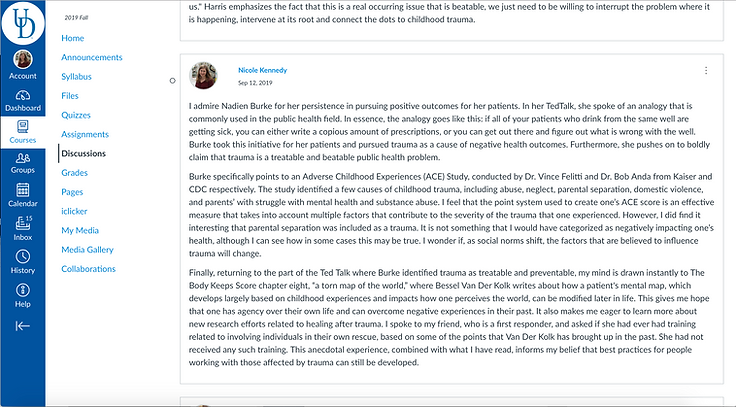Changing the World and Public Policy (UAPP110)


UAPP110 equipped me to answer the question, "what is public policy"?
On the left, you can see a Word Cloud that a group of my peers create in response to that same question. As you can see, there are a lot of ideas about what public policy is.
In this course, I learned that, on the most basic level, public policy can be defined as a course of action adopted or created in response to a problem. I also began to use the policy cycle as a way to describe engagment with public policy.
Graphic credit: Sarah Connors (2016). GeoPolicy: Science and the policy cycle.
Introduction to Civic Engagement (UAPP167)

Image credit: Elizabeth Seeks (2018). Seeking Justice in an Unjust World.
One of the most memorable lessons from this course came in the form of a story. More specifically, that story is "The Star Thrower" by Loren Eisley.
The moral of this story is that everyone can make a difference, at least for one person.
This was definitely something that I believed as an incoming freshman. The story has stuck with throughout my time as an undergraduate, and has been a reminder that even though the world's problems might be daunting, one person really can make a difference.
Social & Political Philosophy (PHIL201)

PHIL201 required participants to engage with questions such as "what is the proper scope of government, what is a just distribution of wealth, and what is the extend of an individuals rights, liberties, and obligation to obey the law?"
I found that this course, which addressed the theoretical side of public service, helped me to articulate my code of ethics.
As I continued with my studies, and had opportunities to pursue internships, including one on Capital Hill, these themes continued to be relevant to my work.
Included on the left is an assignment that I worked on in this course, addressing the concepts of the tragic hero and the political with dirty hands.
Mindfulness for Trauma Work (WOMS209)

“Trauma constantly confronts us with our fragility and with man’s inhumanity to man but also with our extraordinary resilience.”
In this course, we read The Body Keeps Score by Bessel van der Kolk and learned how trauma re-shapes the body and brain. We also conversed with other students and thought critically about the implications of trauma and burn out (see discussion post below).
Learning specifically about these themes were invaluable for me. Often, both of these phenomena are mentioned as being among the potential risks of community-engaged work. This class went a step further, and helped me to identical practical ways that I could care for myself while pursuing a career in this field.

Public Policy Analysis (UAPP325)

In this course, I was able to focus a topic that was of interest to me: justice. I was able to critically examine and analyze recidivism in Delaware. My team and I then worked to offer and examine policy alternatives (see work sample to the left).
In doing so I learned not just about justice, but also about group dynamics. Most notably, this assignment helped me to develop my own voice in relation to my peers. I also advanced my ability to delegate roles and responsibilities, to capitalize on diverse knowledge and skills, and to give/receive support and encouragement.
Public Policy Capstone (UAPP440)

This capstone course served as synthesis of what students had learned in their undergraduate career as well as a final opportunity to prepare them for their careers. Coursework included reading and discussing the book How to Be an Antiracist by Ibram X. Kendi and completing a project for a client.
My group partnered with Councilman David Carter and Alison Windle, the Executive Director of Neighborhood House Inc., to conduct a needs assessment of youth programming in the Middletown-Odessa-Townsend area.
The entire report is available for download on the left. Key findings included that transportation was a major barrier for youth and that a lack of a physical space to hold youth programming was another obstacle. My teammates and I crafted several recommendations based on these findings.